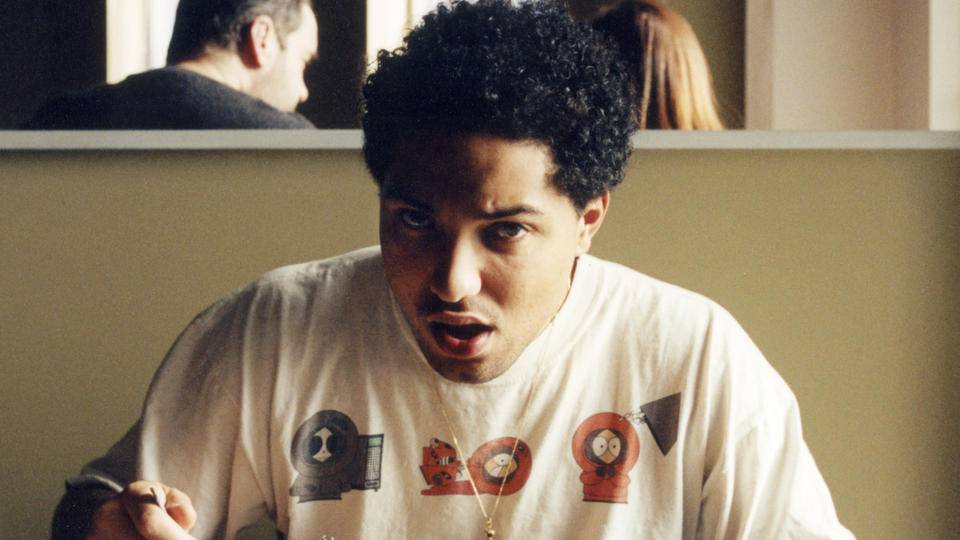First-Timer's Guide: How To Vote In the 2017 General Election

You know there's a General Election coming up on June 8th 2017, right?
Well,whether you've just turned 18and aren't sure how it all works or you're slightly regretting the fact that you didn't get out and vote on the Brexit referendum, here's everything you need to do to have your say.
WHY ARE WE EVEN HAVING AN ELECTION?
ICYMI, Theresa May became Prime Minister when David Cameron, who was elected as PM as a result ofthe 2015 General Election, resigned after the UK voted to leave the EU in last year’s referendum. As Deputy Prime Minister, she theninherited his position. This is becauseour PM is always the leader of the largest political party in the House of Commons, and is not specifically an individual elected by the electorate (that’s us, the voters!).
While we usually only have an election every five years, May was able to call a snap election (that's the one that's happening in June)after calling a vote on the matter within the House of Commons. MPs voted 522 votes to 13 to bring forward the election from 2020 to 2017, seeming to support May’s argument that post-Brexit, Westminster needs cohesion. She reckons MPs are extremely divided and that by calling an election, the new government will have increased legitimacy to move forwards with Brexit and beyond.
WHEN IS THE GENERAL ELECTION?
June 8th – but if you’re not already registered to vote then you’ll need to register before May 22nd in order to be able to be eligible to vote, which brings up on to…
WHO CAN VOTE?
Anyone who is registered to vote, isover the age of 18 on the day of the election and is a British, Irish or qualifying Commonwealth citizen can vote. You must also be a resident at a UK address or be a British citizen living abroad who has been registered to vote in the UK in the last 15 years.
HOW DO I REGISTER TO VOTE?
It’s ridiculously easy and will take you less than two minutes. Just head to gov.uk/register-to-vote, fill in your name, address and national insurance number and you’re ready to go. Even better, you’ll now be registered to vote in all future local and national elections and referendums – just make sure that if you move house you update your details as the constituency you vote in depends entirely on your address.
I’M A STUDENT, WHERE DO I REGISTER TO VOTE?
If you live in student accommodation duringterm-time and with your parents during the holidays, you can probably register to vote in both locations. Remember, it’s illegal to vote more than once/in more than one place, but what this does means is that you have an advantage in thinking aboutwhere your one vote will matter the most before you pick whether to vote at uni or at home. If it was us, we'd doour research and think about how our vote could affect the result in both constituencies before deciding.
I’M GOING TO BE ON HOLIDAY ON JUNE 8TH. CAN I STILL VOTE?
Yes! Just register for a postal vote in advance and you can still have your say. Again, go to gov.uk/register-to-vote and pick the ‘postal vote’ option. Fill in the form, send it back and VOILA. They will then post you info of how to vote by mail ahead of the election.
It could potentiallyalso be worth doing this if you’re doing your AS or A Levels this summer as there are currently exams in a load of subjects scheduled for that day. That said, voting only takes five minutes and polling stations open early and stay open late (generally 7am-10pm), so you should be able to easily factor it into your day either way.
WHAT DOES MY VOTE EVEN MEAN?
The purpose of the General Election is to elect 650 Members of Parliament (MPs) to the UK Parliament. Your vote gives your MP the power to represent you in the legislature - that's the House of Commons - which isthe law-making part of our government.
Each MP represents a single constituency, which is an area of the country with a pre-determined geographical boundary. Your vote is technically not for the Prime Minister at all, but for a local MP who will then go on to represent you and all those in your area at Parliament.
Most MPs belong to a political party (eg. The Conservatives, Labour, Liberal Democrats, Green Party, UKIP, Women’s Equality Party etc) although some people do run as independent candidates.
HOW DO THEY DECIDE WHO WINS?
Our electoral system is called First-Past-The-Post and basically means that on election day, it is the party with the majority of MPs elected at constituency level who will then form the Government. This is because they now have the most representatives in the House of Commons meaning that when it comes to proposing new laws and policy, they will most likely be able to pass them as ideally all members of the party will agree and vote with them. The leader of this party will also become Prime Minister.
Sometimes, when there is no party with a clear majority, several political parties will agree to form a coalition in order to allow them to form a Government. This is unusual in the UK thanks to our electoral system not being proportionally representative, and last happened in 2010 when the Conservatives and Liberal Democrats formed a coalition.
Because of the way constituencies vary in size as well asthe fact that there areno prizes for second place, our electoral system alsomeans that the number of representatives in the House of Commons aren't actually proportionally representative of the number of votes parties have gained across the country. Some argue this means it's harder for those outside the two main parties (that's typicallyLabour and the Conservatives) to get a look in at government level, despite the fact they may have a fair amount of support nationwide.
WHO SHOULD I VOTE FOR?
That’s totally up to you! The best place to start is by googling your constituency. Find out who your current MP is and who is standing for the other parties or as independentsin your area. Do your research, have a read of individual part manifestosand find out who is most likely to represent your values at both a local and national level,and then make your decision. Looking at who leads the party you are voting with can also be useful as if your party wins, they are most likely to be Prime Minister.
Talk to local friends and family too: you don’t have to follow their advice but it can be useful to hear how people you trust feel about party leaders and policies if you’re feeling overwhelmed by the party manifestos.
WHO LEADS EACH PARTY?
Conservative Party – Theresa May
Labour Party – Jeremy Corbyn
Liberal Democrats – Tim Farron
UK Independence Party (UKIP) – Paul Nuttall
Green Party – Caroline Lucas and Jonathan Bartley (yep, they job share)
Women’s Equality Party – Sophie Walker
Scottish National Party (SNP) – Nicola Sturgeon
Plaid Cymru – Leanne Wood
HOW DO I ACTUALLY VOTE ON JUNE 8TH?
Once you’re all registered to vote you’ll be sent a poll card with details of your local polling station. If it doesn’t arrive, contact your local Electoral Registration Office (find yours right here), who will be able to help you sort this out.
On voting day polling stations usually open at 7am and close at 10pm, so you can go to vote any time during these hours. When you arrive you will be asked to confirm your name and address and will then begiven a voting slip. Take this into one the private polling boothsand follow the instructions on the piece of paper to vote for your chosen candidate.
Make sure only to mark one choice or your vote could be discounted, and then return your slip into the ballot box.
If you have any special needs when it comes to voting, it’s the duty of your local Electoral Registration Office to make these happen. You can find yours HERE and they will be able tell you about things like wheelchair accessibility, disabled parking spaces, low-level polling booths and equipment for voters with visual impairment.
WHAT IF I LIVE IN A SAFE SEAT?
Living in a safe seat can be frustrating if you disagree with the party in power. It essentially means that you live in a constituency that has historically been a stronghold for a certain party and as such is unlikely to see any change in leadership.
Don’t let you put this off though: as the 2015 general election proved, there can often be an unexpected result, with plenty of major names losing their seats last time around, it could well happen again.
The important thing is to get out and there and vote, vote, vote! Even if your choice doesn’t win, you are logging your opinion and figures will show just where there is dissatisfaction with those in power.
COULD THE RESULT AFFECT BREXIT?
Don’t hold your breath as it’s unlikely the result of the election will affect us leaving the EU. Both the Tories and Labour have said they’ll enact the EU referendum result and realistically they are the two parties most likely to win the election.
It’s important not to take polls as fact as their predictions for the 2015 election were proved very wrong, but at present it looks like the Conservatives have around a 20 point lead over Labour, meaning they are expected to win.
However, if Labour were to win the election, they are more likely to have a softer approach to Brexit than the Tories meaning that while they’d still put an end to free movement, they wouldn’t ‘sever ties’ with the EU completely when it comes to economic gain.
'Here's a load of stuff you should probably stop complaining about if you cba to vote...'





